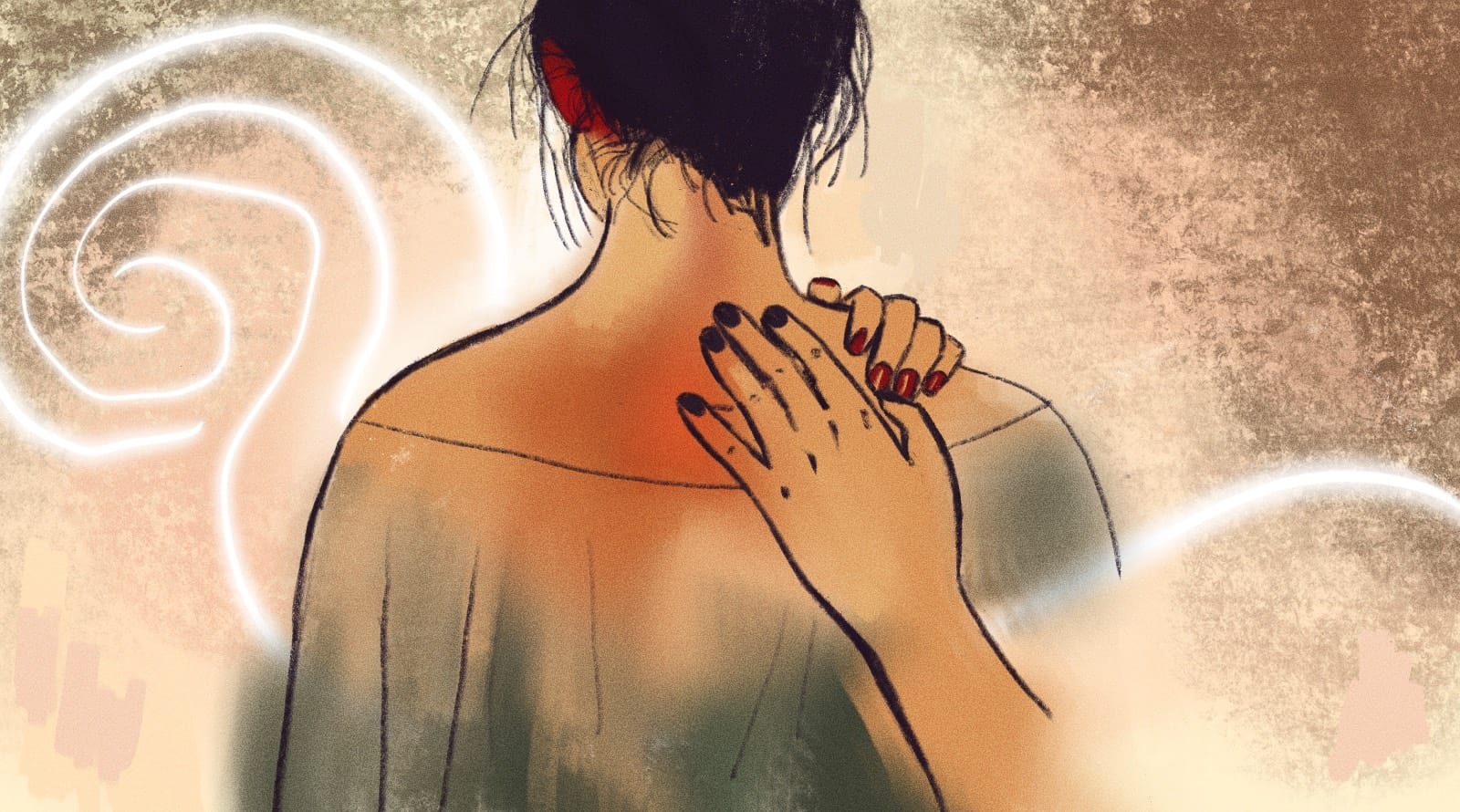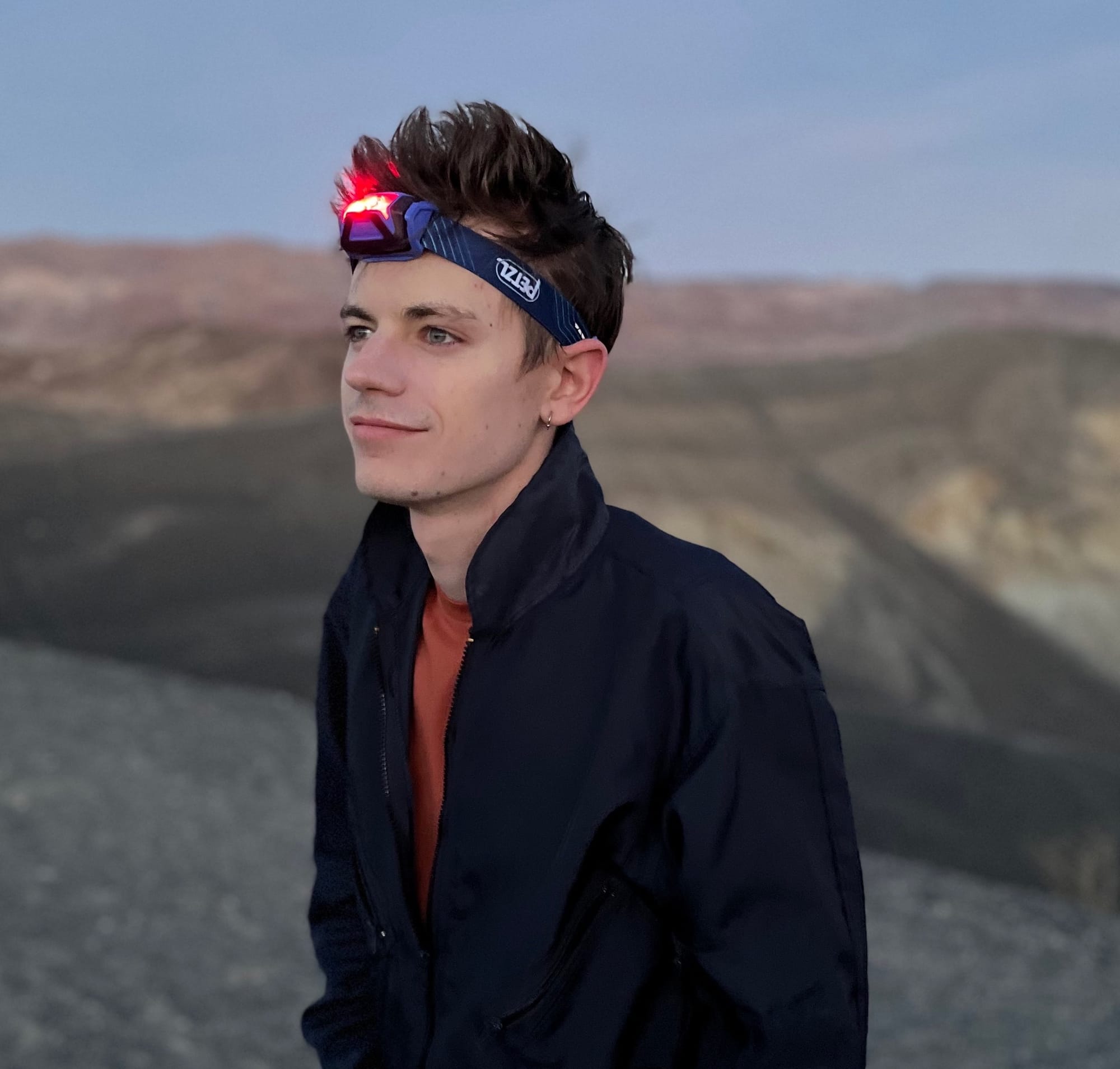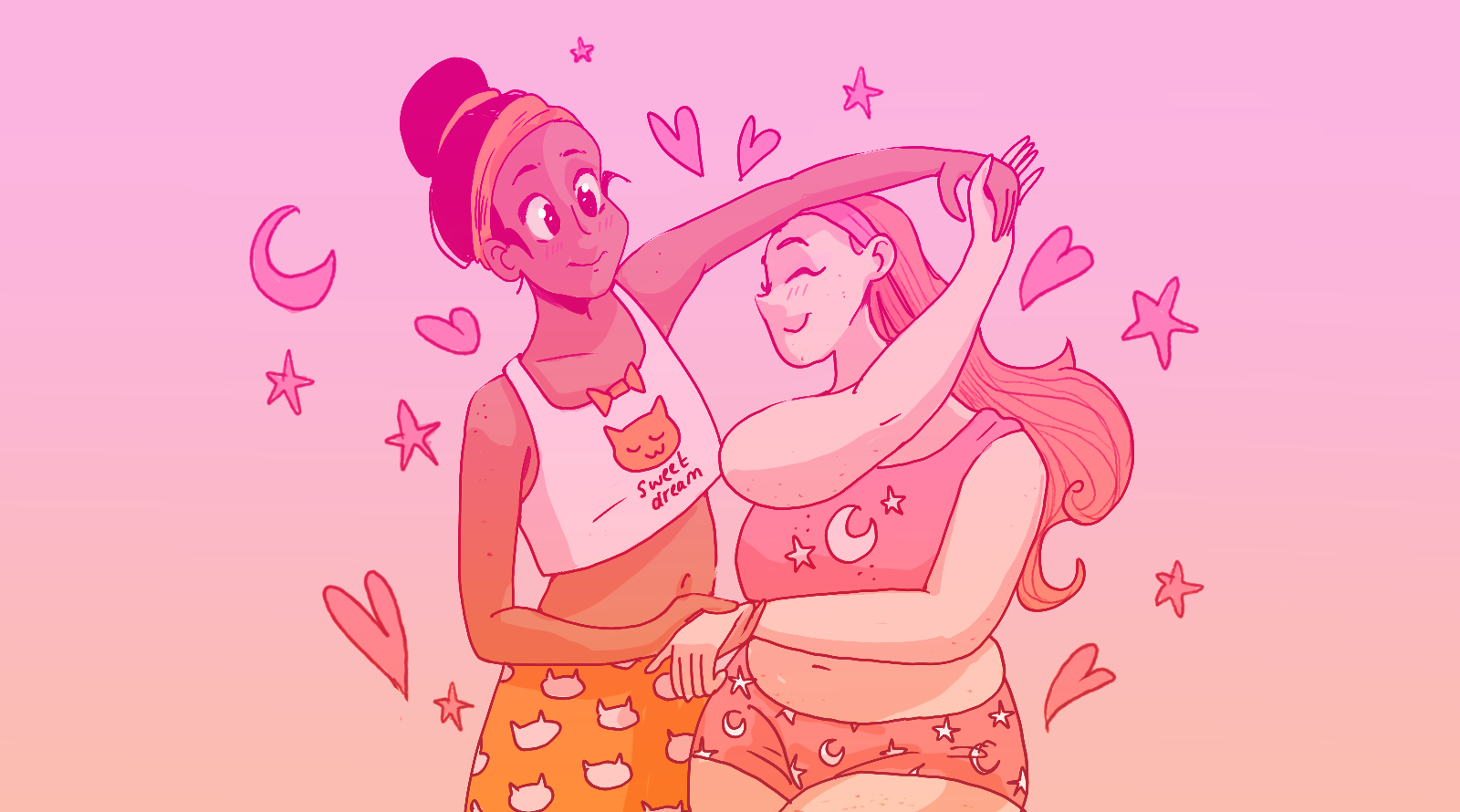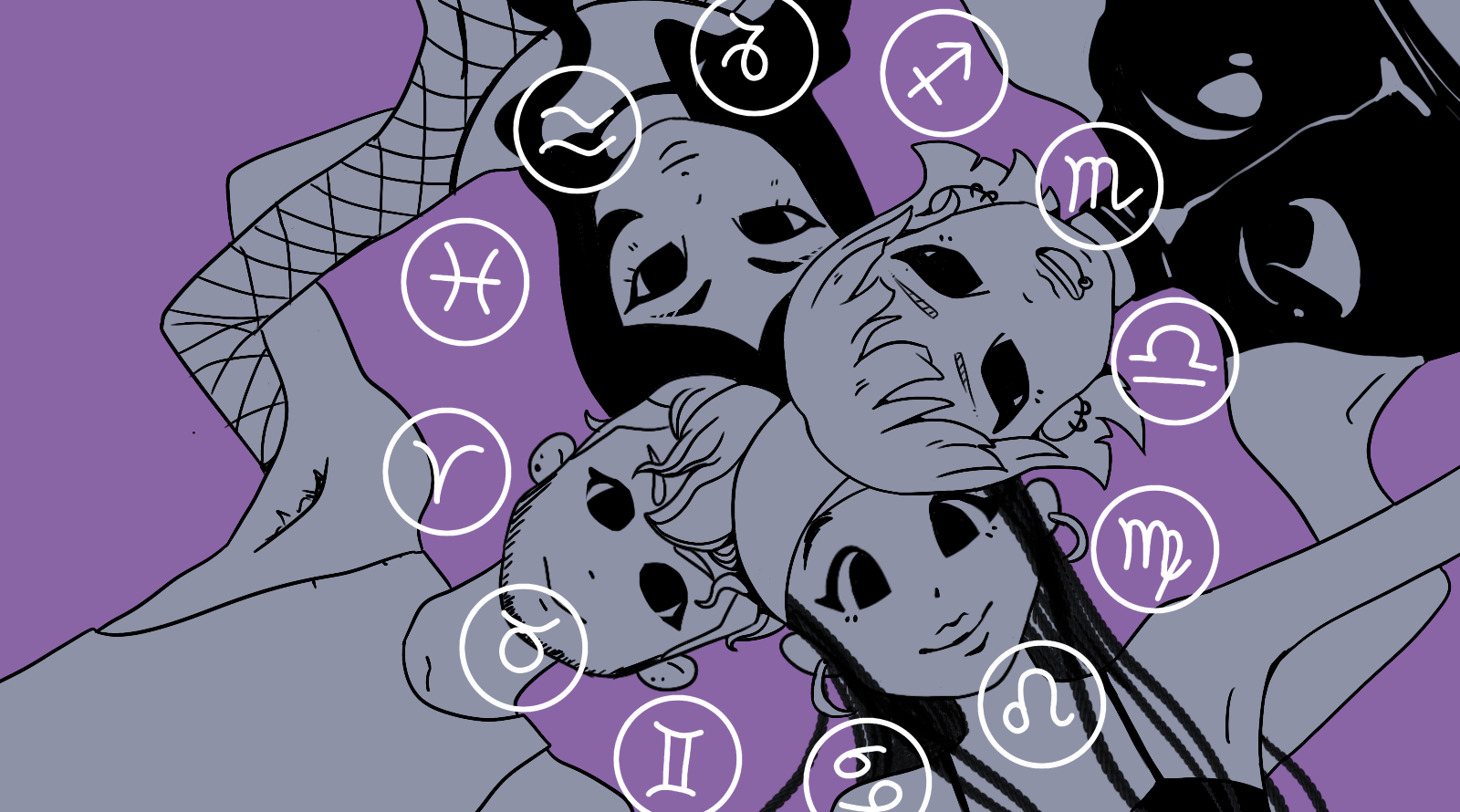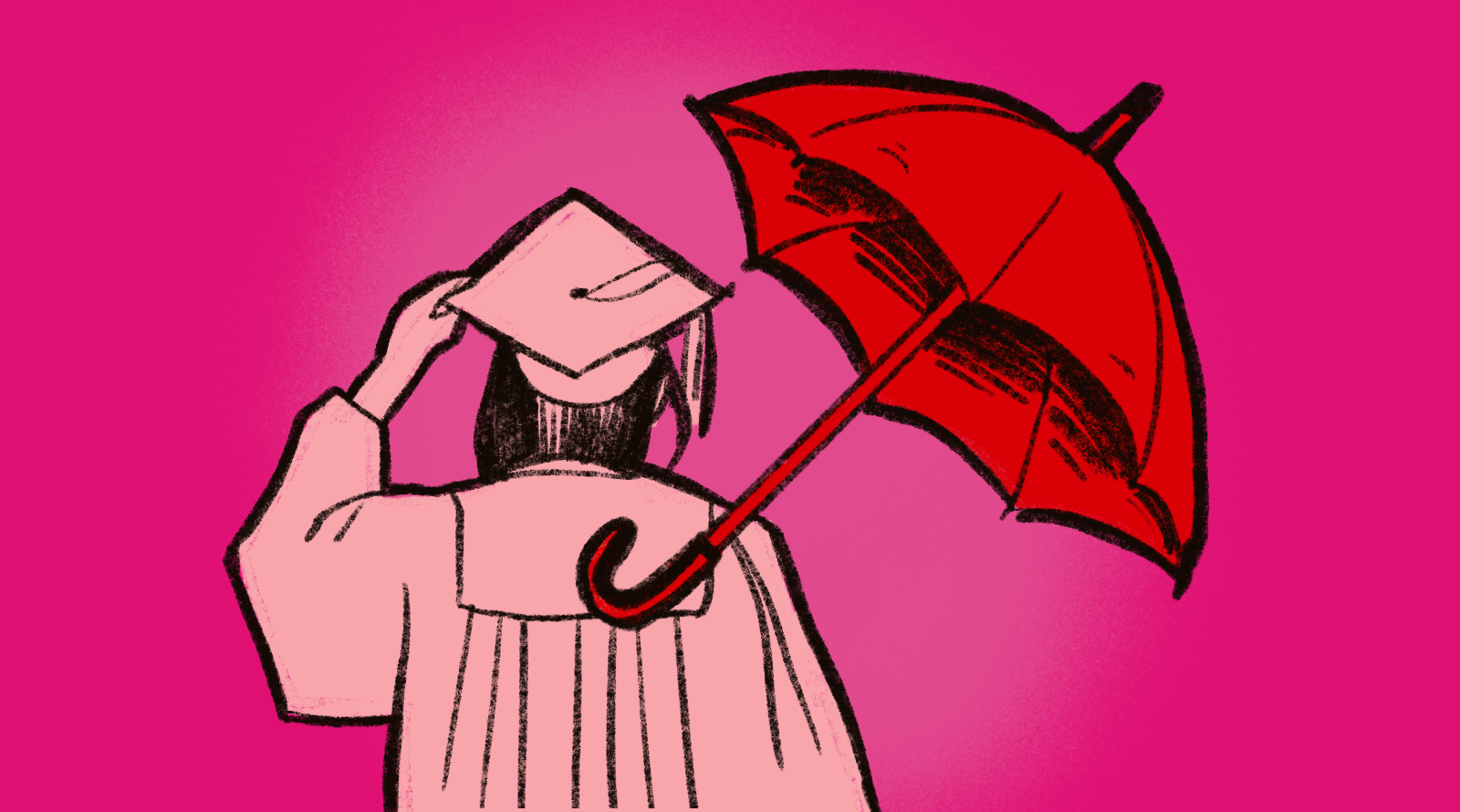Editor’s Note: mentions of death, loss of family (loss of a grandchild, loss of a parent), cancer, COVID-19.
In February of 2021, I was living in Atlanta, GA working as a barista and, along with the rest of the world, adjusting to a pandemic. The coffee shop I worked for received government aid to keep the paychecks coming and the beans brewing, so I learned first-hand how sacred one cup of coffee could be for some people—especially during a time of crisis. Even still, the money I made wasn’t enough to sustain this new weight we had to absorb on top of so much uncertainty. So I began searching for a second stream of income.
Headlines flared with stories of isolation, depression, and death. Few things followed the outbreak in 2020, apart from total chaos, and one industry that seemed to be hit the hardest was deathcare itself. News reports uncovered the stuff of nightmares, like piles of corpses waiting to be cremated outside of an understaffed and overwhelmed crematory. The reality was that mortuaries had not seen a surge in services like that since the Influenza of 1918, which saw an estimated body count between 17-50 million worldwide. The COVID-19 pandemic ravaged every corner of contemporary life including the ways in which we processed death, highlighting a desperate need for support and attention.
A funeral home down the street from my apartment was hiring, and deathcare was a topic that fascinated me from a young age. When I learned about medieval customs in seventh grade history class, death lingered in my peripheral since my Mom had been diagnosed with cancer many years prior. I wasn’t afraid of dying or discussing the murky truth that both my Mom and the rest of the world often ignored. I felt compelled to explore this terrain and began working as a funeral attendant. Later, I enrolled at Gupton-Jones College of Funeral Science with the intent of studying green burial, a branch of deathcare often tagged as “alternative” by industry professionals.
As I settled in, it was clear that I had missed the excitement. My directress explained that “business was slow”, as COVID-19 cases began to simmer. We were in the break room of the funeral home, a glittering property with marble floors, plush velvet pews, and gold-encrusted candelabras supposedly imported from Italy (they weren’t). Over coffee she lamented the recent loss of sales, although Pre-Needs (pre-paid funeral services) remained steady. “You should’ve been here six months ago,” she hissed. “They were dropping like flies!”
I wasn’t afraid of dying or discussing the murky truth that both my Mom and the rest of the world often ignored.
Working as a funeral attendant is similar to an apprenticeship, where the goal is to learn from your superiors and do whatever is asked of you. During one of my shifts, I was instructed to handwrite 200 ‘Thank You’ cards for a guest who had just lost their grandson, they had severe arthritis and couldn’t complete the cards themselves. A viewing was scheduled in two days and they wanted the cards mailed to the homes of their attendees, all 200 of them. The job involved an assortment of random tasks like this one, but most of it was a lot of waiting, thinking, and listening. Perhaps the most surprising element of mortuary work is that funeral professionals spend much of their time offering an ear (or an eye) to complete strangers when they need it most, someone to listen and validate their feelings, a process we know all too well as sex workers. Even when someone is surrounded by loved ones pouring their hearts out in support, a person can feel a level of isolation only felt in the presence of loss. The irony of being a single shell at the bottom of a vast, empty sea floor.
I picked up quickly that this funeral home needed my empathy more than my hands; remaining open and receptive to guests was just as important as lifting caskets into the hearse or answering phone calls for service arrangements. At times I felt like an owl quietly observing a service and waiting to be needed. Other times I felt like a wet washcloth, sopping from the buckets of sorrow I absorbed. I found my engagements to resemble an exchange of energy, or the recycling of burden from one person to the next. The heaviness I felt at home with my Mom’s cancer accelerating would follow me to the mortuary, where I would collect a new bundle of thoughts and feelings to bring back to the apartment. People needed a place to put their grief, to let it breathe. Others needed an opportunity to expel the frustration they felt without closure, or missing the chance to say ‘I love you’ one last time. I was humbled by the exchange.
In school we covered deathcare essentials, including anatomy, data entry, and the psychology of grief. I was uniquely poised to apply some schooling to my personal and professional environments, sharing these discoveries with my partner and my Mom, who stayed with us whenever she had doctor’s appointments nearby. Working in and studying mortuary science helped me prepare for the tougher conversations I needed to have with my own loved ones, and it also exposed another layer of the industry left to ferment in the shadows.
Funeral professionals spend much of their time offering an ear (or an eye) to complete strangers when they need it most, someone to listen and validate their feelings, a process we know all too well as sex workers.
Exploitation is at the heart of modern mortuary practices, especially in the West. When a family is processing the death of a loved one, funeral professionals often appear like shepherds holding the key to post-mortem peace, though a more accurate illustration might be that of a wolf in sheep’s clothing. The modern funeral industry as seen through the lens of tradition and legacy is specifically designed to rack up a lengthy bill of fees and costs related to the service provided. I witnessed this relentless upselling with disappointment, and it was during this time that I vowed to disrupt the status quo one way or another. Interestingly, both funeral workers and sex workers make ideal vessels for systemic change and revolt.
In her debut memoir, Smoke Gets In Your Eyes: And Other Lessons from the Crematory, Caitlin Doughty speaks on a culture of silence (pp. 228) that surrounds our relationships with death. Modern enterprises prey on the vulnerability of those who have lost someone close to them by capitalizing on discretion and concealed self-expression, fostering a society that would prefer to keep death behind closed doors. This kind of approach to death and dying feels all too familiar to our approach to sex workers rights and our existence in the world.
In February of 2022, the dueling forces of life and death converged when my Mom passed away just days before I moved to Las Vegas. After a decade of struggle, her passing was inevitable but difficult to predict, and even though tides were turning away from us, her final sleep still caught me by surprise. It was almost poetic the way things unfolded; my partner and I had already made plans to relocate to Las Vegas for a change of pace, leaving what we knew behind including my journey in funeral service. It was about three days before we hit the road out West when I received a phone call that Mom was in hospice care, and it wasn’t looking good. She was cremated in her hometown in Mississippi, and we passed through on our way to Las Vegas, ending that chapter with the stroke of a new one.
Death is transformative in so many ways, not just for the deceased but for those of us still breathing on earth. Many people are terrified of death, but the truth is that we die every day, every moment, in fact. As the world rotates, so do we. The person you were ten seconds ago is gone and the only real thing is who you are in this moment. So many things I left back in Atlanta: friendships, favorite coffee shops, all four seasons, trees. But one thing that followed me to the desert was a responsibility to my fellow humans, a different kind of luggage that found its way into a new line of work.
Death is transformative in so many ways, not just for the deceased but for those of us still breathing on earth.
Just one year into my life in Fabulous Las Vegas, I slipped into financial ruin on the cliff’s edge of poverty. Having left a toxic work environment with no Plan B, my savings quickly dried up in the Mojave and I had a difficult time finding consistent, reliable employment. Coffee shops were fully staffed, restaurants wouldn’t hire me because I didn’t have enough experience, and for every resumé submitted to online-remote positions, I received a swift rejection. I had tried every industry that made sense for me and my expertise. All but one.
A friend in the circus community recommended I try camming, and with piles of past-due bills assembling in my Downtown studio with just a few dollars lying around for one daily cortado, I was willing to do anything. I made my profile on Streamate, and apart from a parade of novelty requests from paying viewers, perhaps the most startling discovery as a new camboy was how my body was just a fraction of what I was selling. Most of the viewers on my channel remained anonymous, much like the family members I spoke with at the funeral home. After a few months, a large percentage of my returning viewers weren’t even interested in watching me cum or dry hump a pillow; they were seeking something else. One of my regulars had been married to his wife for thirty-seven years when he came across my page, and until then had never gotten the chance to explore some of his deepest fantasies, the ones he kept buried so far from the sunlight only an owl’s eyes could uncover them. We entertained those fantasies together, of course, but most of our time was spent unpacking the challenges he faced at home. We would talk for hours at a time, me in my jockstrap listening to a voice on the other end of a black screen. Another viewer was too nervous to engage directly on the video platform, so we stuck to instant messaging and occasionally shared photos. She felt abandoned by her husband, who would take bi-monthly golfing trips with his buddies and leave her at home for days at a time. More than anything, she just wanted company, so we would make our chats as fun as digitally feasible, with plenty of emojis and voice memos.
After a few months, I was still struggling to stay afloat. There were simply too many piggy banks that demanded my coin, and the bills just kept rolling in. In August, under the psychedelic summer sun, I received an eviction notice from my slumlord. I don’t think I’ve ever felt as empty as I did in that moment, with an unpredictable income, an eviction notice on my front door, and my car having been repossessed due to late payments. I couldn’t even call my Mom to ask for advice.
I didn’t have a stranger to confide in, let alone someone to lift me out of this metaphorical grave. I remember feeling like a single shell at the bottom of the sea floor, unsure of where to go or how to hold on to moving sand. It seemed like I was carrying a bucket of water with nowhere to dump my struggles, until I learned how to carve a new path in the desert sand.
My first client as an escort lived in a penthouse off the Strip with sweeping views of the Spring Mountains from the balcony. After our session, we chatted overlooking the excitement bubbling down below; it was the weekend and Las Vegas was in full Sin City swing. This gentleman was kind, respectful, and a persnickety art collector with dozens of high-profile pieces dotting the walls. He gave me a tour of his favorites and then, somewhat abruptly, began to cry. After a moment I put my hand on his back and asked if I had done anything wrong, to which he replied, “I just have a lot going on right now. I’m glad you’re here.”
My first client as an escort lived in a penthouse off the Strip with sweeping views of the Spring Mountains from the balcony.
In November of 2024 a couple of friends from Atlanta came to visit. We toured the hot spots and I showed them some of my favorite haunts around the city, mostly in the Arts District near Downtown. For dinner we chose a local Italian spot, and over an ungodly portion of linguine I told them how I had started escorting full-time. Their eyes spoke for them, but the reaction was the same I had gotten so often when I told people I was working towards becoming a licensed mortician: shock, and then a combination of cautious curiosity and sympathy. I had forgotten that escorting and sex work as a whole was fairly uncommon back home, or at least it wasn’t openly discussed like it is in Las Vegas. My friends asked if things were really that bad, and I explained to them how sex work was my choice and I was fortunate enough to make that choice. I became a sex worker out of necessity and desperation, when I truly did not have anywhere else to turn. I’ve now chosen to stay in sex work because it allows me to support myself and others without supporting corrupt systems that seek to oppress us. For me, sex work means independence. It also speaks to my time working in deathcare, where I witnessed people being actively exploited when they were at their lowest. Owning your life means owning your death, and opening new avenues for radical expressions of love, grief, loss, and celebration is the only thing that makes sense to me these days.
In December, a client booked me for a Christmas Day BFE. He was a veteran who made frequent visits to Las Vegas for pleasure, but this trip was business-forward as he worked in military surveillance technology. I was curious about his line of work and probably asked too many questions, but his stories were textured and spanned several decades of service, including the conflicts in Iraq and Afghanistan. After four hours together, it dawned on me that these stories rarely saw the light of day; he wasn’t married, had no children, and said he spent most of his free time alone. I noticed the conversation fell when the subject switched from war stories to something more domestic, so I would steer back into that territory and watch him glow with enthusiasm. The most important thing I’ve learned in this space is that your top commodities are your eyes and ears, and putting those to work leads to stronger connections.
Despite their differences, my work as an escort feels remarkably similar to my days spent at the funeral home. Human nature craves connection, but society has taught us to leash certain desires, to support a culture of silence. Many fail to realize that the bulk of a sex worker’s role is to embrace humanity, to exchange energy with another person. The red umbrella covers an array of shades and swaths of expertise, but so much of it is rooted in authentic camaraderie. It’s holding a middle finger up to expectations, to how we process loss and celebrate love. I’ve since left the deathcare space, at least for now. But there is still good work to be done in dismantling the systems that crush what our souls crave at a deeper level, be it sex, support, or a little bit of both. Even the way we deal in sex work today is changing, as is necessary for any kind of growth.
I’ve now chosen to stay in sex work because it allows me to support myself and others without supporting corrupt systems that seek to oppress us.
People imagine sex workers wearing nothing at all, except maybe a thong or a harness. In retrospect, we carry many layers. We shed ourselves bare so that we can wear what we gather from others, dressed in their stories, their memories, their burdens. The greatest act of humanity is love and sex. Some may see love as an art form, and the way we express it is how an artist sees the world, uniquely our own. The phrase, “In death as in life” has many variations, but all of them point to the same thing: if we live free of form and expectation, we die freely and without disappointment. Love transforms us the same way that death transforms a body. When my Mom passed, her soul entered new spaces that ushered transformations for her body on earth and for myself in Las Vegas. We don’t have a choice with death, but we do have a choice with love and how we give it, receive it, and express it.
I found intense duality when I left my home behind and embraced new landscapes out West, a balancing act between old and new. The cremation of one chapter brings life to another, and around it goes again. The role of sex workers continues to evolve, as do the ways in which we process death and where it lives in our societies. This unlikely alliance has shown me that life is death is rebirth. If our destinies are written in the cosmos, then that means every decision is the correct one. Approaching death in this way, free of expectation and free of denial, means we live more authentically and (hopefully) with gusto. As an escort I’ve helped many clients explore their authentic desires, and as a deathcare worker I’ve offered a shoulder to cry on so that people can grieve more openly. Being human means being radically present, and we can do that without instructions from above.
Are you a sex worker with a story, opinion, news, or tips to share? We'd love to hear from you!
We started the tryst.link sex worker blog to help amplify those who aren't handed the mic and bring attention to the issues ya'll care about the most. Got a tale to tell? 👇☂️✨

